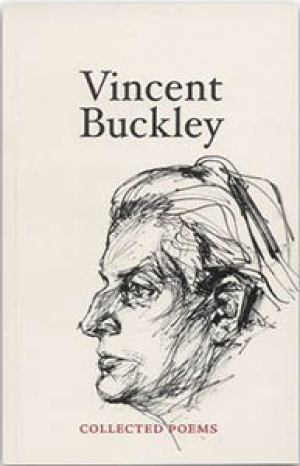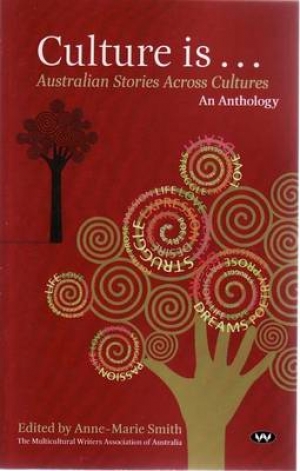Poetry
‘Reading Ted Kooser in the Medical Centre Waiting Room’ by Anthony Lawrence
A doctor with a face
worn and grey as his cardigan
calls my name
in his rooms
he asks about the book I’m reading
I tell him
... (read more)Elizabeth Campbell reviews 'The Darwin Poems' by Emily Ballou
Emily Ballou’s first book of poems opens with a quotation from Coleridge’s Definitions of Poetry: ‘Poetry is not the proper antithesis to prose but to science. Poetry is opposed to science.’ A book of poems on the life of Charles Darwin must be a refutation of this idea, though I had expected a more direct return to the comment which, two hundred years after Coleridge wrote it, has accrued greater meaning. In Coleridge’s time, the dazzling and potentially alienating specialisation of the sciences had not occurred, and C.P. Snow had never hailed the ‘two cultures’. Anti-intellectualism had not yet colluded with postmodern suspicion of reason to decry the malign, hegemonic nature of Western science. Coleridge, like many educated men of his time, was conversant with the latest advances in most branches of the sciences. He enjoyed a close friendship with Humphry Davy, the foremost scientist of the day, who also wrote poetry.
... (read more)Kate Middleton’s accomplished first book, Fire Season, begins with ‘Autobiography’, where the child kicks against the perceived constraints and ambiguities of her sex: she could ‘make a half-decent boy’ only if the books she read were ‘full enough of war / or gunrunners, or treasure, or spies, or spoils / of piracy. No, I didn’t know how to hold a hammer.’ Middleton constructs a version of self defined by negatives: the narrator was not a ‘boy’, but does not explain why she sees ‘boy’ as the norm or as a preferred sex. Much of Fire Season explores some historical and mythical women, often in light of this shadowy definition (‘You once said // the visible and the invisible imply each other’, ‘Essay on Absence – Journal (with Judy Garland)’). In particular, Middleton invokes several movie stars – Lana Turner, Barbara Stanwyck, Doris Day, Clara Bow, Lauren Bacall, as well as Judy Garland – measuring her distance from these fabled figures, as well as investigating them as alternative lives.
... (read more)Gregory Kratzmann reviews 'Vincent Buckley: Collected Poems' edited by Chris Wallace-Crabbe and 'Journey Without Arrival: The life and writing of Vincent Buckley' by John McLaren
Amnesia about writers of the past, even the not too distant past, is one of the besetting ills of our culture. How many readers of poetry under forty have more than a nodding acquaintance with the work of A.D. Hope, Francis Webb, Douglas Stewart or Vincent Buckley? All are fine poets, remembered now (if at all) through a handful of anthology pieces, partly because their published volumes usually disappear from print within a few years. Poets are particularly susceptible to the culture of forgetting, but the malaise extends to novelists and others who have made major contributions to our cultural, political and social life.
... (read more)David Lumsden reviews 'Therapy Like Fish: New and selected poems' by Marcella Polain
Marcella Polain’s latest book of poems continues her lyrical exploration of personal experience. Her earlier collections centred on immigrant life, shadowed by a violent history, in the adopted context of the Western Australian wheat belt. In the new poems, which occupy more than one third of the current volume, the emotional terrain has thickened, and the range of experience has expanded to include midlife concerns of failing health, ageing parents and death. ‘So this is what life is,’ Polain writes, ‘nausea, vertigo, migraine, cramps.’ One poem describes the extra chores of helping her mother, and ends: ‘Last Sunday you couldn’t remember who I was or / what you wanted me to buy for you.’
... (read more)It is fitting that ‘Waking’, a poem that links waking with birth, opens this inspired début collection from Emma Jones: ‘There was one morning // when my mother woke and felt a twitch / inside, like the shifting of curtains. // She woke and so did I.’ So the narrator-poet announces her arrival. The birthing theme continues in the next poem, ‘Farming’, in which pearls are ‘shucked from the heart of their grey mothers’. The same poem also foregrounds the poet’s interest in Ballard-like submerged worlds – oyster farms and shipwrecks, but also entire cities – and in the polarities of sky and sea. Indeed, this collection as a whole engages imaginatively with many dualisms: worldly/other worldly, internal/external, being/not being, self/other. Jones’s method is one of controlled playfulness, and despite many allusions to biblical themes and imagery, she avoids the didactic dualism of good/evil.
... (read more)Lisa Gorton reviews 'Five Bells Australian Poetry Festival (Double Issue)' edited by John S. Batts et al.
Along with regular features, this bumper edition of the Poets’ Union journal, Five Bells, includes the proceedings of festival discussions in Sydney, Melbourne, and Perth: sixteen strongly argued, well-crafted papers by some of Australia’s best poets, variously considering the state of Australian poetry now. For all the individual interest of these papers, this collection’s strength lies in the way they set up parallels and contradictions, working together like a long, amiable argument.
... (read more)Since her début in 1971, Pam Brown has been a consistently intelligent and engaging presence in Australian poetry, if too often under-represented in those reputation-establishers, the anthologies. One pragmatic reason for this may lie in a further element of consistency, the formal structure of her poems. Poems that spin their way down the page, resolutely short-lined, or ones that fragment lines and thought into zigzag patterns across the breadth of the page, are faithful to the characteristics of the New Australian Poetry celebrated in John Tranter’s 1979 anthology of that title. They are characteristics that Brown has honed finely over the years. They are also, from the point of view of anthologists and, more powerfully, their publishers, wilfully heedless of that most brutal constraint, the number of pages available for any given anthology.
... (read more)Blow Out is Rae Desmond Jones’s first collection of poetry, punctuated by novels and plays, since The Palace of Art (1981). His prominence during the 1970s is evinced by his publishing four books of poetry within eight years and by his inclusion in John Tranter’s The New Australian Poetry (1979). This is a long silence, but Jones, now in his late sixties, has filled it with political activism, serving as mayor of Sydney’s Ashfield Council from 2004 to 2006. So much for unacknowledged legislators.
... (read more)Michael Jacklin reviews 'Culture Is … : Australian Stories Across Cultures' edited by Anne-Marie Smith
Alberto Dominguez identified himself as un Australiano de habla hispana – a Spanish-speaking Australian. As such, he gave enormously to the Spanish-speaking community of Sydney. Dominguez was a radio broadcaster with SBS and community radio stations in western Sydney, and a founding member of several Latin American cultural organisations. For many Spanish-speaking Australians who came as refugees from Latin America, Dominguez’s radio-voice provided them with essential information and helped them settle in. Yet when he died as a passenger aboard American Airlines flight 11, which struck the northern tower of the World Trade Centre in September 2001, most media in Australia identified him only as an Uruguayan-born migrant, a father of four and a Qantas baggage-handler. There was little mention of his work in radio, or his prominence amongst the Spanish-speaking community. Bel Vidal, whose essay opens this anthology of stories, essays and poems, asks that Australians remember Dominguez – the first Australian to die in the World Trade Centre attacks – as more than a migrant who, decades after his arrival, still lacked fluency in English. Vidal, herself a migrant from Bolivia, argues that the civic contributions made by Dominguez in his first language deserve a place in Australian history and culture.
... (read more)








